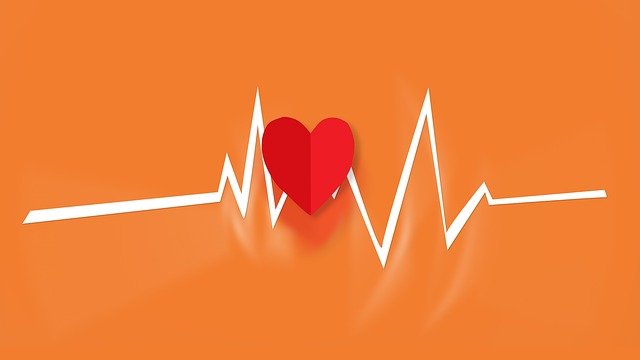3 Heart Failure Signs That Often Go Unnoticed By Women
Heart failure affects millions of Americans, yet its symptoms often manifest differently in women compared to men. This gender disparity in symptom presentation can lead to delayed diagnosis and treatment, particularly because women may experience subtle or atypical signs that they—and sometimes even healthcare providers—might dismiss or attribute to other conditions. Understanding these less obvious symptoms is crucial for early detection and improved outcomes in women experiencing heart failure.

Unusual Fatigue That Doesn’t Improve With Rest
Women with heart failure commonly experience a profound, persistent fatigue that differs significantly from ordinary tiredness. This isn’t simply feeling worn out after a busy day—it’s an overwhelming exhaustion that doesn’t improve with adequate rest or sleep. Many women describe it as feeling completely drained or “wiped out” even after minimal physical activity.
What makes this symptom particularly deceptive is that women often attribute it to aging, stress, or their busy lifestyles rather than a potential cardiac issue. The fatigue occurs because the heart isn’t pumping efficiently enough to deliver oxygen-rich blood throughout the body. As a result, muscles and organs receive inadequate oxygen, leading to this persistent exhaustion. Women may notice they can no longer complete routine household tasks or daily activities without becoming unusually tired or needing to rest frequently.
Swelling Beyond Common Areas
While most people associate heart failure with swollen ankles or feet (peripheral edema), women might experience fluid retention in less obvious areas. This symptom occurs when the heart’s reduced pumping ability causes blood to back up in the veins, leading to increased pressure that forces fluid into surrounding tissues.
Women may notice subtle swelling in their lower abdomen, sudden unexplained weight gain (particularly 2-3 pounds overnight or 5 pounds in a week), or increased fullness in the face, especially around the eyes upon waking. Some might find their rings suddenly feel tight, or their shoes no longer fit comfortably by the end of the day. What makes this symptom easy to overlook is that women often attribute these changes to hormonal fluctuations, aging, or dietary factors rather than heart failure.
Unexplained Shortness of Breath During Routine Activities
Breathlessness that occurs during everyday activities that previously caused no difficulty can be a critical warning sign of heart failure in women. This symptom—known medically as dyspnea—often develops gradually, making it particularly easy to miss or rationalize away.
Women might notice they become winded while climbing stairs they previously managed with ease, carrying groceries, or even during light household chores. A particularly telling sign is orthopnea—difficulty breathing when lying flat—which may cause women to prop themselves up with extra pillows at night or sleep in a recliner without recognizing it as a potential cardiac symptom. Some women also experience paroxysmal nocturnal dyspnea—waking up suddenly at night gasping for air. These breathing difficulties occur because fluid accumulates in the lungs due to the heart’s inability to pump efficiently.
Additional Heart Failure Signs Women Often Dismiss
Beyond the three primary overlooked symptoms, women with heart failure might experience other subtle indicators that deserve attention. These include persistent coughing or wheezing (especially when lying down), heart palpitations that feel like fluttering or racing, difficulty concentrating or confusion, and increased urination, particularly at night (nocturia).
Women are also more likely than men to experience gastrointestinal symptoms with heart failure, including nausea, lack of appetite, or feeling of fullness after eating small amounts of food. These digestive issues occur because blood flow is being diverted away from the digestive system to support vital organs when the heart isn’t pumping efficiently. Unfortunately, these symptoms are frequently attributed to digestive disorders, stress, or medication side effects rather than heart problems.
Risk Factors That Increase Heart Failure Likelihood in Women
Women with certain conditions face a higher risk of developing heart failure and should be particularly vigilant about subtle symptoms. Conditions like coronary artery disease, hypertension (high blood pressure), and diabetes significantly increase heart failure risk. What many don’t realize is that pregnancy-related conditions like preeclampsia or gestational diabetes can increase a woman’s lifetime risk of heart failure, even years after pregnancy.
Women who have undergone chemotherapy or radiation for breast cancer may have treatment-induced cardiotoxicity that increases their heart failure risk. Additionally, those with autoimmune disorders like rheumatoid arthritis or lupus—conditions that disproportionately affect women—face elevated risks of developing heart problems, including heart failure. Menopausal women experience decreased estrogen levels, which can affect cardiovascular health and potentially contribute to heart failure risk.
When Women Should Seek Medical Attention for Heart Concerns
Any woman experiencing persistent fatigue, unusual swelling, or unexplained breathlessness should consult with a healthcare provider promptly. These symptoms warrant medical attention, especially when they represent a change from normal functioning or when multiple symptoms occur together.
Women should seek emergency medical care if they experience severe shortness of breath, chest pain or pressure, fainting, or rapid/irregular heartbeat. For less acute but persistent symptoms, scheduling an appointment with a primary care physician or cardiologist is appropriate. When discussing symptoms with healthcare providers, women should be specific about changes they’ve noticed and advocate for thorough cardiac evaluation if heart concerns are dismissed too readily.
Regular heart health screenings are particularly important for women with risk factors such as high blood pressure, diabetes, family history of heart disease, smoking history, or previous pregnancy complications. Women should be proactive about discussing heart health during routine medical visits, as early intervention can significantly improve outcomes for heart failure.
This article is for informational purposes only and should not be considered medical advice. Please consult a qualified healthcare professional for personalized guidance and treatment.




